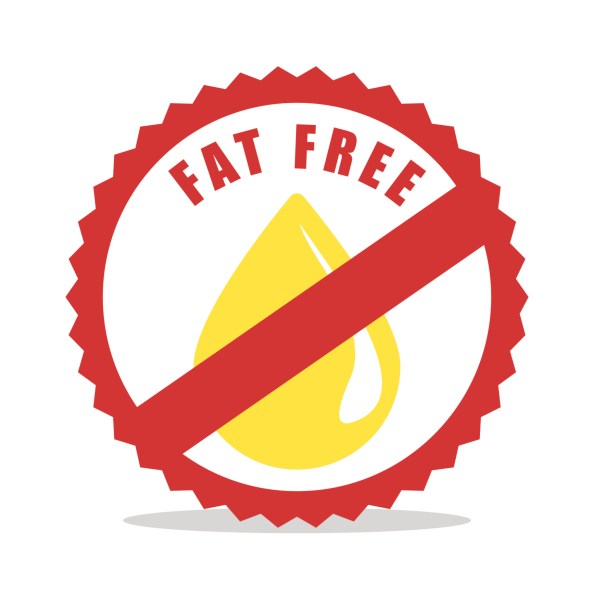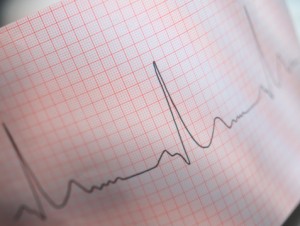How to Lose 2 Pounds a Week
How to Lose 2 Pounds a Week
Although putting in the hard work and dropping pounds is respected and admirable, drastic weight loss can be damaging, harmful, and unsuccessful in the long-run.

When deciding to lose weight, there are several questions often left unanswered. Can losing weight too quickly be harmful? Can healthy weight loss fast even occur? With so much health-related information out there, sorting through the nutrition confusion is understandable. Fortunately, there are simple steps to achieve a healthy weight loss.
Healthy Weight Loss
What exactly entails a "healthy weight loss?" Isn't all weight loss success supposed to be valued? Although putting in the hard work and dropping pounds is respected and admirable, drastic weight loss can be damaging, harmful, and unsuccessful in the long-run. Unless recommended and supervised under the care of a health professional, losing more than two pounds per week is generally not ideal. Individuals usually get discouraged when the pounds do not shed off quickly. However, sustained weight loss occurs best when dropping weight slowly. Congratulations on taking the first step and reading how to lose 2 pounds a week in a safe manner!
How to Lose 2 Pounds a Week... Safely
First thing is first; losing two pounds per week generally comes down to a deficit of 7,000 calories (3,500 calories per one pound). Although that may seem like a large number to tackle and defeat, climbing that 7,000 calorie mountain can be broken down into smaller hills. Essentially, increasing physical activity and keeping the diet in check will create the most successful weight loss.
Hitting the Gym
Since restricting 7,000 calories a week from food is quite the deficit, weight loss can occur quicker and healthier with the help of exercise. If exercising is a whole new beast, start small. Even taking the steps and parking further away from stores or work can add up the calories burned. Individuals should partake in at least 30 minutes of moderate cardiovascular exercise five times per week. Additionally, find what workout routine works best for you. Exercising should be fun and if running seems daunting, do not do it. Look for other options such as biking, hiking, and swimming. Working out with a partner or partaking in group classes can also keep you more accountable while gaining new motivation throughout the process.
Additionally, introduce and include resistance training. Working muscles and stimulating their growth has further benefits cardio alone cannot provide. An increased muscle mass allows the body to burn calories even at rest and promotes further weight loss. Weight training also improves bone density, thus reducing the opportunity for bone loss and osteoporosis.
Weight Loss Happens in the Kitchen
Despite all of the hard work put into daily workouts, if the diet does not match, weight can remain the same. Generally, weight loss and a healthy lifestyle depends on 80 percent diet and 20 percent physical activity. Oftentimes, people overestimate how many calories are burned at the gym and in turn, will overestimate calorie consumption. However, it is important to nourish the body after workouts, especially after weight training. Supply the body with protein and healthy carbs. One best post-workout filled with nutrients is chocolate milk due to its sufficient protein to carb ratio. It is also relatively accessible and inexpensive.
Beyond post-workout nutrition, keep the kitchen and diet filled with nutrient-dense foods. When it comes to macronutrients, the general rule is 45 to 65% lean, adequate protein, 20-25% healthy fats, and 30-35% complex carbohydrates of total calories. A well-balanced diet contains whole grains, fruits and vegetables, low-fat dairy products, lean proteins, and healthy fat sources. Ideally, a meal plate should feature half veggies and fruits, a quarter of lean protein, and a quarter of whole grains. Sticking to servings and portions can also help keep those macronutrients in balance. Ideally, three nutrient-composed meals and one to two nutritious snacks should be consumed each day to keep hunger at bay. Fiber can also maintain satiety and fullness. Most whole grains, fruits and veggies, and legumes contain a high amount of fiber. Recommended intake, 38 grams for men and 25 grams for women each day, can keep also keep bowels regular.
Although water often lacks the ability to provide energy and nutrients, its consumption is crucial in healthy weight loss. Not only does water keep the body hydrated, it helps the nutrients obtained from foods to efficiently perform their roles in the body. Ditching the soft drinks and other sugary beverages will also save hundreds of calories each day and make weight loss a little more effortless and mindless.
Ultimately...
Slow and steady wins the race! Taking extreme measures to losing weight quickly can be detrimental to health and unsuccessful in the long run. Embracing a healthy diet while increasing exercise not only encourages weight loss, but also a general healthy lifestyle. In the long run, the risk of chronic diseases will be reduced along with sustained weight loss and maintenance.
-
Ive Just Lost A Whole Lot Of Weight Now What
The idea behind a workout plan for toning the muscle is to shape? the
-
When to Announce That Detox Diet Guide On Cleansing Your Body Is Stable
A detox diet plan could possibly sound quite reassuring for it’s
-
A Couple Of Ideas To Help You Achieve To Your Weight Loss Goals
Although exercise and diet is very important in relation to weight los
-
Weight Loss And Staying Motivated
Trying to lose weight has probably got to be the single most difficul
-
Fat Burning Cardio Workout Myth Part 2
In this second article about the cardio fat burning myth I will com
-
Nutrition 101: Carbohydrates
Mood and mental condition are strongly influenced by ones nutrition
- DON'T MISS
- Diabetes treatment may reduce breast cancer risk in women by lowering mammographic density: Study
- Discover how to lose weight fast by using detox diets
- Novel Ways to Eat Less
- Child Obesity
- How To Select The Right Weight Loss Exercise
- Ten Important Things To Know Before You Join A Weight Loss Program
- Just What You Might Want To Learn Before You Buy Clenbuterol
- Top Ten Fat Melting Tips for Effective Weight Loss
- Weight Watchers Points Calculator
- Fat Burning Tips That Work!




